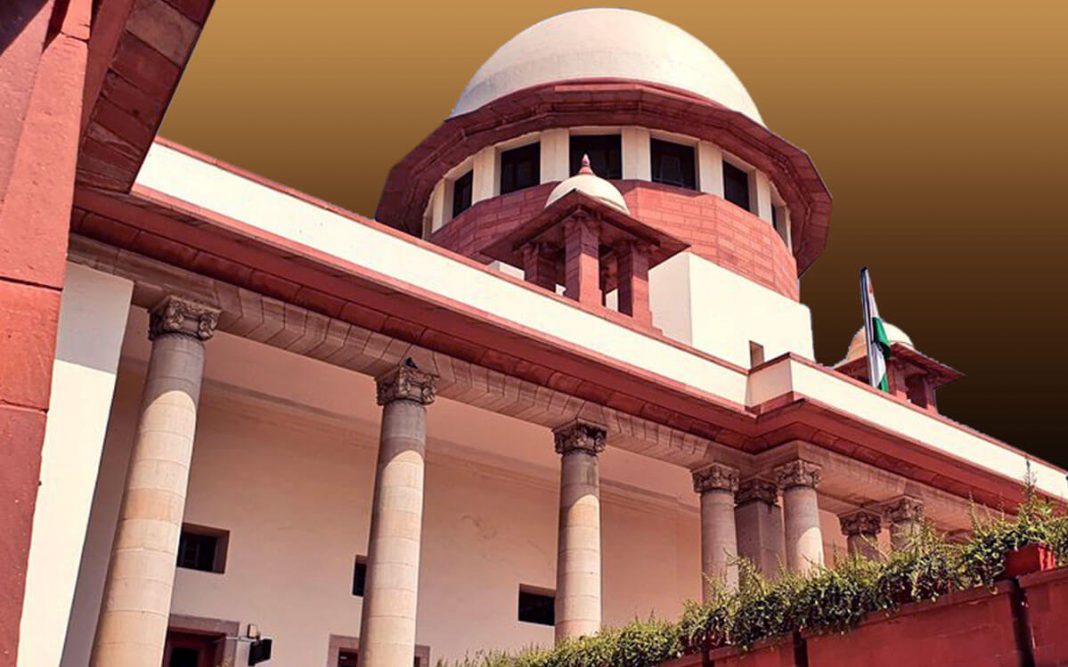ILNS: The Supreme Court on Tuesday refused to transfer two cases filed by the CBI against a septuagenarian couple from Darjeeling to New Delhi, saying that however sympathetic one maybe to the health condition of the accused, the other respondents cannot be put into trouble by transfer of the case.
While hearing a petition filed by retired CPWD Chief Engineer Devendra Kumar Saxena, the single-judge bench of Justice V. Ramasubramanian said even if the totality of the circumstances is taken into consideration, a transfer cannot be ordered.
The Bench said,
“It is true, as rightly contended by the Senior Counsel for the petitioner, that the right of the accused to a fair trial and a fair opportunity to defend himself against the charges will be meaningful, only when there is active participation of the accused in the proceedings. Though one may point out the availability of technology for effective communications between the client and the counsel, the same cannot replace the physical assistance that an accused may be able to render to the Defence counsel in a criminal proceeding.”
“But the same logic will apply equally to Respondent Nos 2 and 3 in the first case. If the petitioner is entitled to a fair trial, the Respondent Nos 2 and 3 are also equally entitled to a fair trial. I cannot ask Respondent Nos 2 and 3 in the first case to travel to Delhi and expect them to defend the case effectively,”
-added the Judge.
The Court also refused to transfer another case, in which the petitioner himself and his wife were only accused, saying that it is true that in the second case, there are no other co-accused except the wife of the petitioner, but there is no point in ordering the transfer of one case and rejecting the prayer for transfer in the other case.
“However, the Trial Court shall take note of the health condition of the petitioner and dispense with his personal appearance, except when necessary. If online participation is permissible and the facility is also available, it is open to the Special Court to consider whether the petitioner can be allowed to participate virtually, so that he is not completely in the dark about what is happening,”
-the Bench said.
According to the petitioner, CBI had filed criminal cases against him and his wife under the Prevention of Corruption Act, 1988 and they had been tried before the Court of Special CBI Judge, Siliguri, Darjeeling, West Bengal.
The petitioner said he was now aged about 70 years and had already suffered a severe paralytic attack and brain stroke. He claimed that he was not in a position to move, walk, speak and perform his routine activities, without the help of an attendant.
CBI contended that charges had been framed against the petitioner(s) under Sections 120B IPC and Sections 7 of the Prevention of Corruption Act, 1988 in one case and under Sections 109 IPC read with Sections 13(2) and 13(1)(e) of the
Prevention of Corruption Act, 1988 in other case.
The national agency said that the accused retired from service on September 30, 2010. The FIR was lodged on September 30, 2010 in the first case and the final report was filed on June 30, 2011. It appears that there are 21 witnesses in the first case and out of them, none have been examined so far. FIR was lodged in the second case on January 5, 2011 and the final report was filed on May 31, 2012. A total of 115 witnesses are to be examined in the second case, out of whom 32 have already been examined.
Also Read: SC sets aside bail given to 6 murder accused, criticises Gujarat HC verdict
The Supreme Court said that though the Senior Counsel for the petitioner has contended that the witnesses remaining to be examined in the second case are scattered all over and not in the locality, “I do not think it is viable that after the examination of 32 witnesses, we should transfer the case”.
The case pertains to October 1, 2010, when CBI had arrested Saxena on graft charges, a day after he retired from the service. According to media reports, CBI conducted searches at the residences of the retired chief engineer in Delhi and Siliguri (West Bengal) and recovered unaccounted cash worth Rs 1.5 crore and incriminating documents. Saxena was posted in Siliguri and was responsible for ensuring flood-lighting work along the Indo-Bangla border.


